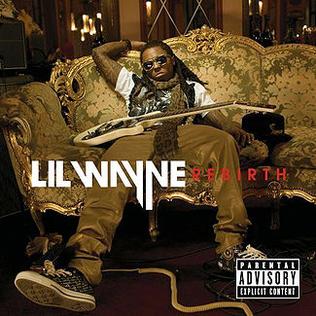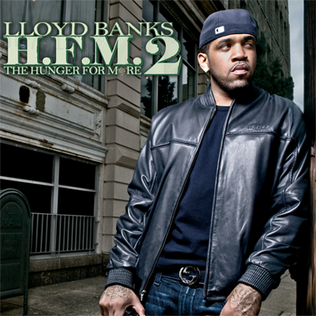The music of the video game Final Fantasy X was composed by regular series composer Nobuo Uematsu, along with Masashi Hamauzu and Junya Nakano. It was the first title in the main Final Fantasy series in which Uematsu was not the sole composer. The Final Fantasy X Original Soundtrack was released on four Compact Discs in 2001 by DigiCube, and was re-released in 2004 by Square Enix. Prior to the album's North American release, a reduced version entitled Final Fantasy X Official Soundtrack was released on a single disk by Tokyopop in 2002. An EP entitled feel/Go dream: Yuna & Tidus containing additional singles not present in the game was released by DigiCube in 2001. Piano Collections Final Fantasy X, a collection of piano arrangements of the original soundtracks by Masashi Hamauzu and performed by Aki Kuroda, was released by DigiCube in 2002 and re-released by Square EA in 2004. A collection of vocal arrangements of pieces from the game arranged by Katsumi Suyama along with radio drama tracks was released as Final Fantasy X Vocal Collection in 2002 by DigiCube.
Final Fantasy VII is a role-playing video game by Square as the seventh installment in the Final Fantasy series. Released in 1997, the game sparked the release of a collection of media centered on the game entitled the Compilation of Final Fantasy VII. The music of the Final Fantasy VII series includes not only the soundtrack to the original game and its associated albums, but also the soundtracks and music albums released for the other titles in the collection. The first album produced was Final Fantasy VII Original Soundtrack, a compilation of all the music in the game. It was released as a soundtrack album on four CDs by DigiCube in 1997. A selection of tracks from the album was released in the single-disc Reunion Tracks by DigiCube the same year. Piano Collections Final Fantasy VII, an album featuring piano arrangements of pieces from the soundtrack, was released in 2003 by DigiCube, and Square Enix began reprinting all three albums in 2004. To date, these are the only released albums based on the original game's soundtrack, and were solely composed by regular series composer Nobuo Uematsu; his role for the majority of subsequent albums has been filled by Masashi Hamauzu and Takeharu Ishimoto.
The music of the video game Final Fantasy III was composed by regular series composer Nobuo Uematsu. Final Fantasy III Original Sound Version, a compilation of almost all of the music in the game, was released by Square Co./NTT Publishing in 1991, and subsequently re-released by NTT Publishing in 1994 and 2004. The soundtrack to the remake of Final Fantasy III for the Nintendo DS, Final Fantasy III Original Soundtrack was released by NTT Publishing in 2006, with revamped versions of the tracks and additional tracks. A vocal arrangement album entitled Final Fantasy III Yūkyū no Kaze Densetsu, or literally Final Fantasy III Legend of the Eternal Wind, contained a selection of musical tracks from the game. The tracks were performed by Nobuo Uematsu and Dido, a duo composed of Michiaki Kato and Shizuru Ohtaka. The album was released by Data M in 1990 and by Polystar in 1994.
The music of the video game Final Fantasy IX was composed by regular series composer Nobuo Uematsu. It was his last exclusive Final Fantasy score. The Final Fantasy IX Original Soundtrack, a compilation of all music in the game, was originally released on four Compact Discs by DigiCube in 2000, and was re-released by Square Enix in 2004. A Best Of and arranged soundtrack album of musical tracks from the game entitled Final Fantasy IX: Uematsu's Best Selection was released in 2000 by Tokyopop Soundtrax. Final Fantasy IX Original Soundtrack PLUS, an album of music from the game's full motion videos and extra tracks, was released by DigiCube in 2000 and re-released in 2004, and a collection of piano arrangements of pieces from the original soundtrack arranged by Shirō Hamaguchi and performed by Louis Leerink was released as Piano Collections Final Fantasy IX in 2001.

Rebirth is the seventh studio album by American rapper Lil Wayne, released February 2, 2010, on Cash Money Records, Young Money Entertainment and Universal Motown. The album's production was primarily handled by Cool & Dre, DJ Infamous, DJ Nasty & LVM, Kevin Rudolf, and J.U.S.T.I.C.E. League. Rebirth was promoted as Wayne's rock music debut, though it includes some hip hop tracks. The album features guest appearances from Eminem, Kevin Rudolf, Shanell and Nicki Minaj.

Carpe Diem is the third studio album by Spanish singer Belinda, released on March 23, 2010, through Capitol Latin. It is primarily electropop music, a departure from the pop rock sound of her previous albums. It debuted on the Billboard Top Latin Albums at number 12, number three on the Latin Pop Albums and number 21 on the Top Heatseekers Albums. In Mexico, entered at number seven and number five in the category in Spanish.

Eric Khaled Saade is a Swedish singer-songwriter. He spent two years with the boy band What's Up!, leaving the band in February 2009 to pursue a solo career. Saade represented Sweden in the Eurovision Song Contest 2011 with the song "Popular", finishing in third place.

The discography of American rapper B.o.B consists of seven studio albums, five compilation albums, three extended plays (EPs), 26 mixtapes, 51 singles, 14 promotional singles, and 76 music videos.

Drama Queen is the seventh studio album by Puerto Rican reggaeton recording artist Ivy Queen. It was released on July 13, 2010 by Machete Music. The album was written by Queen with help from Rafael Castillo, Marcos Masis and others, while production was handled by Luny Tunes, Tainy and Noriega. The album features collaborations with De La Ghetto, Frank Reyes, Wisin & Yandel and Franco "El Gorila". It features a wide variety of musical styles in common with her previous album, Sentimiento, released three years earlier on a different label.

Lucy Woodward is an English-American singer-songwriter. She has recorded for Atlantic, Verve, and GroundUP and has sung background vocals for Rod Stewart, Barbra Streisand, Snarky Puppy, Celine Dion, Pink Martini, Gavin DeGraw, Joe Cocker, Chaka Khan, Nikka Costa, and Randy Jackson. She co-wrote Stacie Orrico's Top 40 hit "(There's Gotta Be) More to Life".

"Deuces" is a song written and performed by American singer Chris Brown featuring fellow American musicians Tyga and Kevin McCall. Produced by McCall, "Deuces" was released digitally on June 25, 2010, as the lead single from Brown's first collaborative effort with Tyga, titled Fan of a Fan (2010). The song is a slow, down-tempo R&B ballad featuring elements from the genres of house and pop music, while the song is lyrically about "breaking it off with a girl after failed attempts to make the relationship work". "Deuces" was later included on Brown's fourth studio album, F.A.M.E. (2011).

We Rule the Night is the fourth studio album by Swedish metalcore band Sonic Syndicate. The album was released on August 27, 2010 through Nuclear Blast and was produced by Toby Wright. We Rule the Night is the first full-length release by the band to feature the vocals of Nathan James Biggs who replaced former singer Roland Johansson who left the band in 2009. However, it is also the last album to feature founding members Richard and Roger Sjunnesson, who both left the band in October 2010 and May 2012 respectively. The band toured Europe to support the album with the "We Rule the World Tour", starting on September 15, 2010 with Christoffer Andersson standing in for Richard.

"Indestructible" is a song by Swedish recording artist Robyn, taken from her seventh studio album Body Talk (2010). The song was written by Robyn and Klas Åhlund, and produced by Åhlund. It was released as the lead single from Body Talk on 1 November 2010 in Sweden and one day later in the United States. The song was previously heard, in an acoustic form, as the final track on Body Talk Pt. 2, released in September 2010. The song was one of the first to be recorded for the Body Talk series, but Robyn saved it for later to give it a chance of becoming a single.

"Call Your Girlfriend" is a song by Swedish recording artist Robyn, taken from her seventh studio album, Body Talk (2010). It was released as the album's second single on 1 April 2011. The song was written by Robyn, Klas Åhlund and Alexander Kronlund. Åhlund handled production, with assistance by Billboard. In the song, Robyn portrays a woman who begs her new partner to break up with an old girlfriend, and advises on how to do it gently. "Call Your Girlfriend" is an electropop ballad with synths and a buzzing rhythm.

Covers is the first English-language cover album released by Beni Arashiro under her new label Universal Music Japan under the mononym Beni on March 21, 2012. This album contains cover songs from popular Japanese male singers in Japan. However, the original Japanese lyrics have been translated to English by Beni herself. The 13th song will be chosen by the fans through a request page. The song chosen by the fans is Naoto Inti Raymi's song "Ima no Kimi wo Wasurenai" Covers has been certified Gold by RIAJ for shipment of 100,000 copies. On 16 May, it was announced that Covers sold over 100,000 copies.making it Beni's highest ranked and best selling album so far. The website announced on 21 August, that a Deluxe version of "Covers" was going to be released on 12 September 2012. The new version would include a DVD with music video's and live video footage.

H.F.M. 2 is the third studio album by American rapper Lloyd Banks, released on November 22, 2010 through G-Unit Records and EMI.

English singer and songwriter Florrie has released a compilation album, four extended plays (EPs), twenty-four singles and fifteen music videos.

The discography of Action Bronson, an American rapper from Flushing, Queens, New York, consists of seven studio albums, one collaborative album, three extended plays (EPs), four mixtapes and thirty-three singles.














